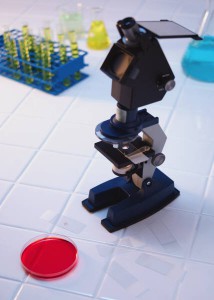
An exciting new development in the battle against all forms of cancer has been announced by the journal Nature Communications. Engineers have devised a sponge-like apparatus that attracts the attention of cancer cells, causing them to cluster—not in an organism’s organ—but on the man-made apparatus. This represents a step toward controlling metastatic cells in patients suffering from breast, pancreatic, and prostate cancer in the future.
FDA Approved Material
The device is made of a sponge-like “biomaterial” that has already received FDA approval for use in medical devices. Although it has only been used in lab rodents with breast cancer, the material could be tested in humans very soon. It works like a decoy to attract cancer cells and distract them from clustering in the body’s organs. So far, the results have been promising, and researchers are eager to begin the next phase.
An Effective Decoy
Ordinarily, cancer cells break loose from a tumor and are attracted to other areas in the body by immune cells. In the research results, these immune cells flocked to the sponge-like material, which is its natural reaction to any foreign body. The cancer cells end up being caught in the device and consequently reduced the numbers present at other sites, preventing them from colonizing other organs in the live test rodents and enabled researchers to extract them from the body while they remained inside the absorbent sponge-like material.
These findings are very positive and represent the ongoing strides that are being taken in the quest for a cancer cure. However, treatments like this will have to go through many stages before they can be made available to the public. To stay informed about the latest treatments available, and to receive more information about non-toxic cancer treatments, contact the Issels® Center for Immuno-Oncology.





